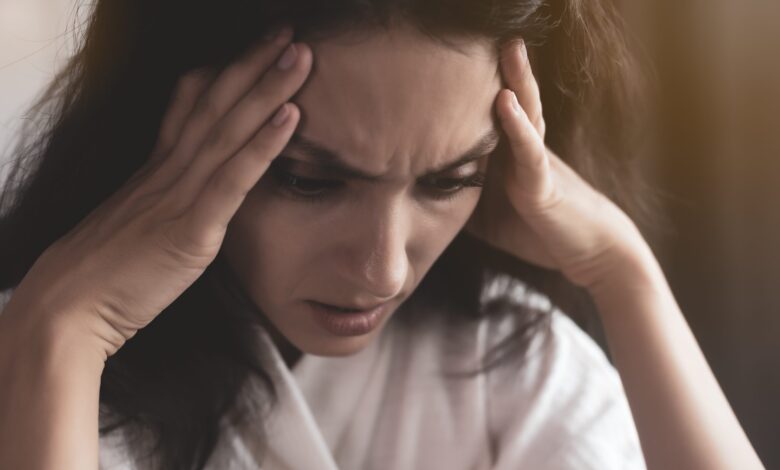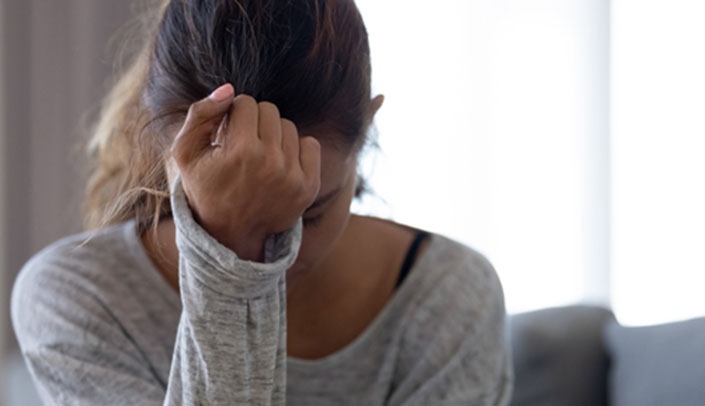Importance of managing anxiety and stress naturally

Natural Anxiety Relief and Stress Relief Techniques
Introduction
In today’s fast-paced world, anxiety and stress are more prevalent than ever. Whether you’re juggling work, family, or just the demands of daily life, it’s easy to feel overwhelmed. While pharmaceuticals and other traditional treatments are often used to manage anxiety and stress, many people are seeking natural anxiety relief and stress relief techniques. These techniques not only help reduce the symptoms of anxiety but also improve overall mental health in a sustainable, holistic way. In this post, we’ll dive into the most effective natural methods for calming anxiety and relieving stress.
Understanding Anxiety and Stress
Before we explore the natural methods for relief, it’s important to understand what anxiety and stress are and how they affect the body.
Anxiety is a feeling of worry, nervousness, or unease, typically about something with an uncertain outcome. It can be chronic or situational, and its physical symptoms may include a racing heart, sweaty palms, and shortness of breath.
Stress, on the other hand, is the body’s reaction to any change that requires adjustment or response. It can be triggered by both good and bad experiences and may cause physical tension, fatigue, and emotional strain. While short-term stress can be motivating, chronic stress can negatively impact your health.
The Physical and Mental Impact of Anxiety and Stress
Anxiety and stress don’t just affect your emotions—they also have profound effects on the body and mind. Prolonged stress can lead to:
Physical health issues: These include headaches, high blood pressure, heart disease, and a weakened immune system. Mental health challenges: Stress and anxiety can impact memory, concentration, and decision-making. Over time, they may lead to more serious mental health issues such as depression or panic disorders. For these reasons, it’s essential to manage both anxiety and stress before they cause long-term damage to your well-being. Find out more about the impact of stress on physical and mental health here.
Why Natural Techniques Work for Stress and Anxiety
Many natural techniques for anxiety and stress relief focus on calming the mind and body without the use of medications. These methods allow your body to regulate its natural stress response and promote relaxation. Research has shown that these techniques can significantly lower levels of cortisol (the stress hormone), reduce muscle tension, and improve emotional well-being.
Breathing Techniques for Anxiety and Stress Relief
Breathing exercises are among the simplest yet most effective methods for relieving anxiety. Focusing on your breath can help calm your nervous system and bring you back to the present moment.
Diaphragmatic breathing: This deep breathing exercise involves taking slow, deep breaths that engage your diaphragm, allowing your body to relax.
Box breathing: This method involves inhaling for four counts, holding for four counts, exhaling for four counts, and holding again for four counts.
4-7-8 Breathing: Breathe in for four counts, hold for seven, and exhale slowly for eight. This technique helps activate the body’s parasympathetic nervous system, inducing calmness.
Learn more about deep breathing exercises here.
Mindfulness and Meditation for Stress Relief
Mindfulness and meditation are powerful techniques for reducing stress and anxiety. They help train the mind to focus on the present moment, decreasing feelings of anxiety about the future or regrets from the past. Studies have shown that regular meditation can reduce the volume of the amygdala, the part of the brain responsible for stress responses.
Mindfulness meditation: This practice involves paying attention to your breath, thoughts, and sensations without judgment.
Guided meditation: Many apps and online resources offer guided sessions, which provide step-by-step instructions for meditation, making it easier to stay focused.
Discover guided meditation apps here.
Progressive Muscle Relaxation (PMR)
Progressive Muscle Relaxation (PMR) involves systematically tensing and relaxing different muscle groups in your body. This technique helps reduce muscle tension, which is a common symptom of stress. By practicing PMR, you can become more aware of areas where you carry tension, which can then be released through relaxation.
Yoga and Stretching for Anxiety Relief
Yoga is an ancient practice that combines physical poses, breathing exercises, and meditation to promote both mental and physical well-being. It has been shown to help lower blood pressure, reduce anxiety, and improve overall mood.
Specific poses for anxiety: Some yoga poses, like Child’s Pose, Downward-Facing Dog, and Corpse Pose, are particularly helpful in relaxing the body and calming the mind.
Stretching: Gentle stretches also help release muscle tension and improve flexibility, promoting relaxation.
Explore beginner yoga routines here.
Herbal Remedies for Anxiety and Stress
Nature has provided us with several plants that have anxiety-relieving properties. Some of the most popular herbal remedies for anxiety include:
Lavender: Known for its calming scent, lavender can be used as an essential oil or in tea form to reduce anxiety.
Chamomile: A gentle sedative, chamomile tea can promote relaxation before bed and reduce stress throughout the day.
Valerian root: Often used to treat insomnia and anxiety, valerian root is commonly available in supplement form.
Learn about the effectiveness of herbal remedies for anxiety.
Aromatherapy for Stress Relief
Aromatherapy is the use of essential oils to improve physical and emotional health. Certain scents, like lavender, rose, and chamomile, can activate the brain’s limbic system, which controls emotions. Aromatherapy can be used in various ways, including through diffusers, massage oils, or adding a few drops of essential oils to your bath.
Nutrition for Reducing Anxiety and Stress
What you eat can have a significant impact on your mood. Foods rich in omega-3 fatty acids, magnesium, and B vitamins can help reduce stress levels. Incorporating nutrient-dense foods into your diet helps regulate cortisol levels and supports brain function. Hydration is also important, as dehydration can increase feelings of anxiety.
Exercise for Anxiety and Stress Relief
Exercise is one of the most effective natural stress relievers. Physical activity releases endorphins, the body’s natural mood elevators, which help reduce feelings of anxiety. Exercise also lowers cortisol levels and helps with sleep, both of which are essential for managing stress.
Sleep and Rest for Reducing Stress and Anxiety
- Sleep is essential for mental health, and a lack of it can increase anxiety and stress. Improving sleep hygiene by creating a relaxing bedtime routine, limiting screen time before bed, and sleeping in a cool, dark room can significantly improve sleep quality.
Journaling and Expressive Writing for Stress Relief
Writing down your thoughts and emotions can be incredibly
Read Also Tracking Your Fitness Progress: Tools and Apps
